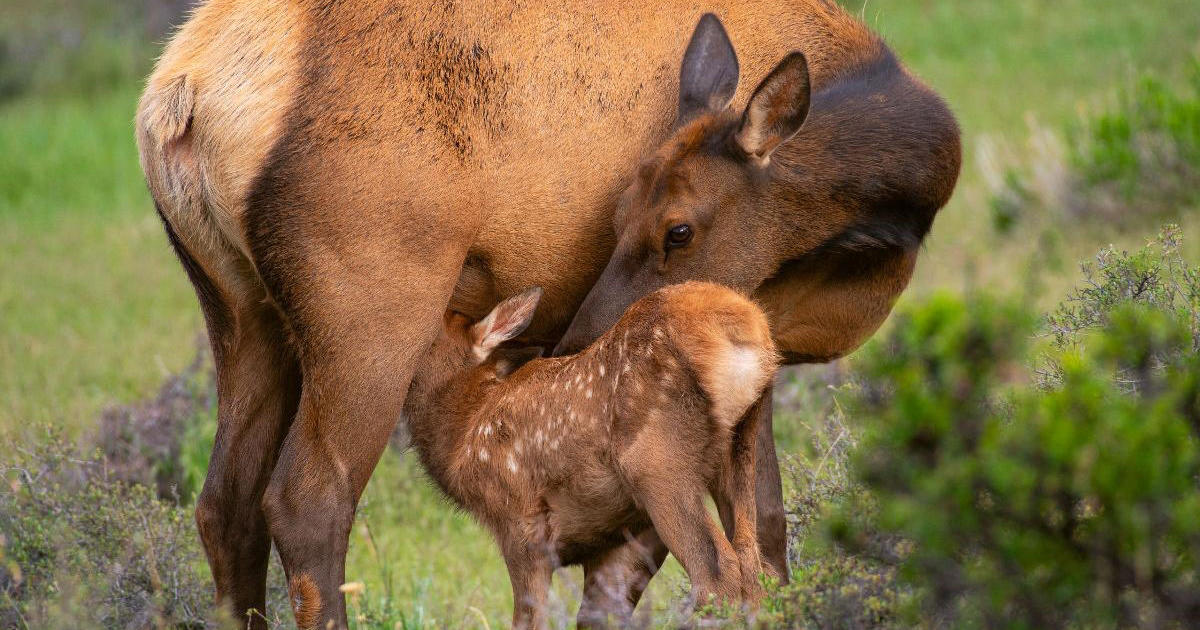Arvada Woman Struggles To Relocate Backyard Bobcats
ARVADA, Colo. (CBS4) - Colorado Parks and Wildlife says bobcats in urban areas are becoming more prevalent. If you have a reliable food source and a lot of vegetation, it's not unusual for these animals to get comfortable on your property.
However, an Arvada homeowner finds it unusual that she can't get assistance getting bobcats removed from her backyard.
"They play like regular kittens would. They play with each other, they play with the mama," said Jessie Curtiss, an Arvada mother with five bobcats in her backyard. "But no one goes into the backyard because there's a mama. She's defensive over her kittens."
The mother bobcat is about the size of a 40-pound dog.
Curtiss first realized the bobcats were there over the weekend, after her neighbor spotted the mother bobcat roaming in the front yard. Her neighbor called animal control after she saw the wild animals.
"Animal control came, acknowledged them and took some pictures," said Curtiss, "Animal Control said they'd keep an eye on it, but it was the Division of Wildlife's responsibility, and they'd file a report."
However, when Curtiss reached out to Colorado Parks and Wildlife, they said the bobcats weren't their responsibility either.
"The Division of Wildlife said that a bobcat is a nuisance animal and that it's animal control's responsibility," said Curtiss.
CPW said they were first made aware of the bobcats in Curtiss' backyard after CBS4 contacted them. CPW says understanding who to call can be confusing for homeowners with unwanted wildlife in the yards.
"Those lines blur time to time depending on species. We don't have the personnel to respond to every wild animal call and some of the smaller game animals don't take all the priority," explained Jason Clay with CPW.
In a case like this, Clay says CPW would recommend that the homeowner haze the bobcats away.
"Use airhorns or loud noises. They can put ammonia soaked rags down as a deterrent to keep them from coming back. Once you have them out safely, close off that area so they can't come back in," said Clay.
CPW says concerned homeowners can always call for information and resources, but it's not likely that they're going to relocate those bobcats for Curtiss.
Curtiss wants to relocate the bobcats as safely as possible. She isn't sure what the ammonia, and other hazing methods, could do to the kittens.
CPW says there's some responsibility that comes with being a land and homeowner. Clay says CPW will sometimes recommend people to pest control companies that specialize in smaller, nuisance animals if homeowners don't feel comfortable having the animals around.
According to Arvada Animal Control's website: "Arvada is a beautiful area surrounded by open space, which comes with great benefits as well as some natural hazards. This is the reality of the natural world we live in. We ask our residents to respect the unique aspects of living among wildlife and to be proactive so wildlife and humans can continue to coexist peacefully."
The bobcats in Curtiss' backyard haven't caused harm, with the exception of a water hose and stray rabbits, but she worries about the small pets and children who live nearby.
Curtiss still isn't sure how she will relocate the bobcats from her backyard.







